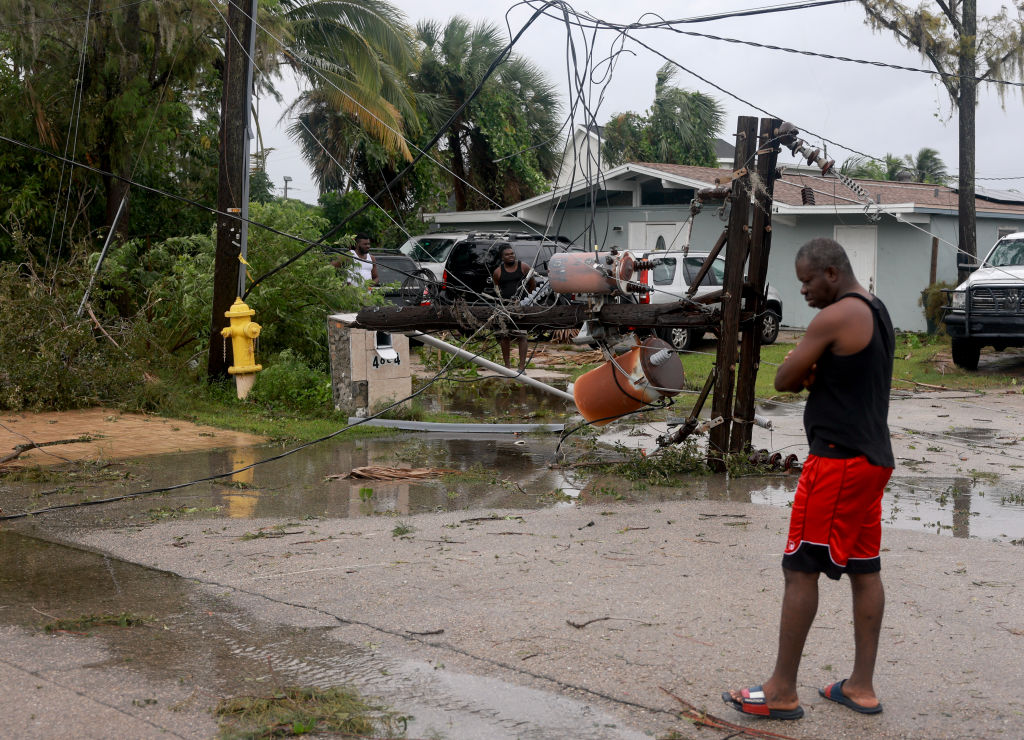Already reeling from two savage hurricanes in Debby and Helene, Florida was this week hit by Hurricane Milton before it had any chance to fully recover. As the state’s Governor Ron de Santis warned, debris that hadn’t yet been cleared would become projectiles. Rather than increasing arithmetically, the human and economic toll of this storm trio risked rising exponentially. With their estimated damages now exceeding $100 billion, the hit to the state’s economy is approaching a tenth of its annual output.
Were Florida an independent country, that scale of damage would make it collapse. It would probably produce a chain reaction of crises, with tumbling property values triggering a collapse in the banking system. Fortunately for Florida, it happens to be part of the world’s biggest economy. Federal funds will help residents avoid the worst forms of indigence, the central bank will ensure the financial system remains liquid, and the rest of the US economy will provide the economic demand that enables the state economy to rebound afterwards.
Still, the American economy is ill-prepared for the rising frequency and intensity of such compound weather events. Of the 10 costliest extreme weather events to have ever happened in the US, six occurred in the last decade, the result of climate change intensifying weather patterns. Scientists are expecting more of them in the future, some unprecedented in scale and character. For instance, there is the threat of a killer storm hitting during a heatwave and knocking out both the power supply and the windows. Apartment blocks built without adequate air flow on the assumption the air conditioning would always be running would then turn into potential death traps for their more vulnerable residents.
The economic hit to output from such events is normally brief, as the subsequent clean-up and rebuilding makes up for the lost output. But given their rising frequency, such events are now producing more lasting effects. Recurrent supply shortages are driving up prices, especially on food, and some economists expect the effect on inflation to become permanent. Insurance policies are being re-priced, and in some places properties are becoming unmarketable. Falling property values will then knock the chain of assets backed by them, such as banks and real-estate trusts. Equally, businesses which are themselves not prepared for such recurring events, say with inadequate infrastructure that will need upgrading, may find their own assets re-priced.
This won’t be sudden, and so won’t lead to anything like the financial panic triggered by the 1906 San Francisco Earthquake, which ultimately led to the formation of the Federal Reserve. More likely, it will play out over years, in the form of higher long-term interest rates and lower asset values — at least in relative terms. In the long run, though, that sort of frog-in-boiling-water scenario may be worse than a sudden fall that leads to systemic change. For instance, the vast pool of wealth tied up in pension funds, which themselves base their payouts on anticipated future returns that may not materialise, could one day face a moment of reckoning rendered more severe by its postponement.
America may ride out this storm, but there are many more to come.











Join the discussion
Join like minded readers that support our journalism by becoming a paid subscriber
To join the discussion in the comments, become a paid subscriber.
Join like minded readers that support our journalism, read unlimited articles and enjoy other subscriber-only benefits.
Subscribe